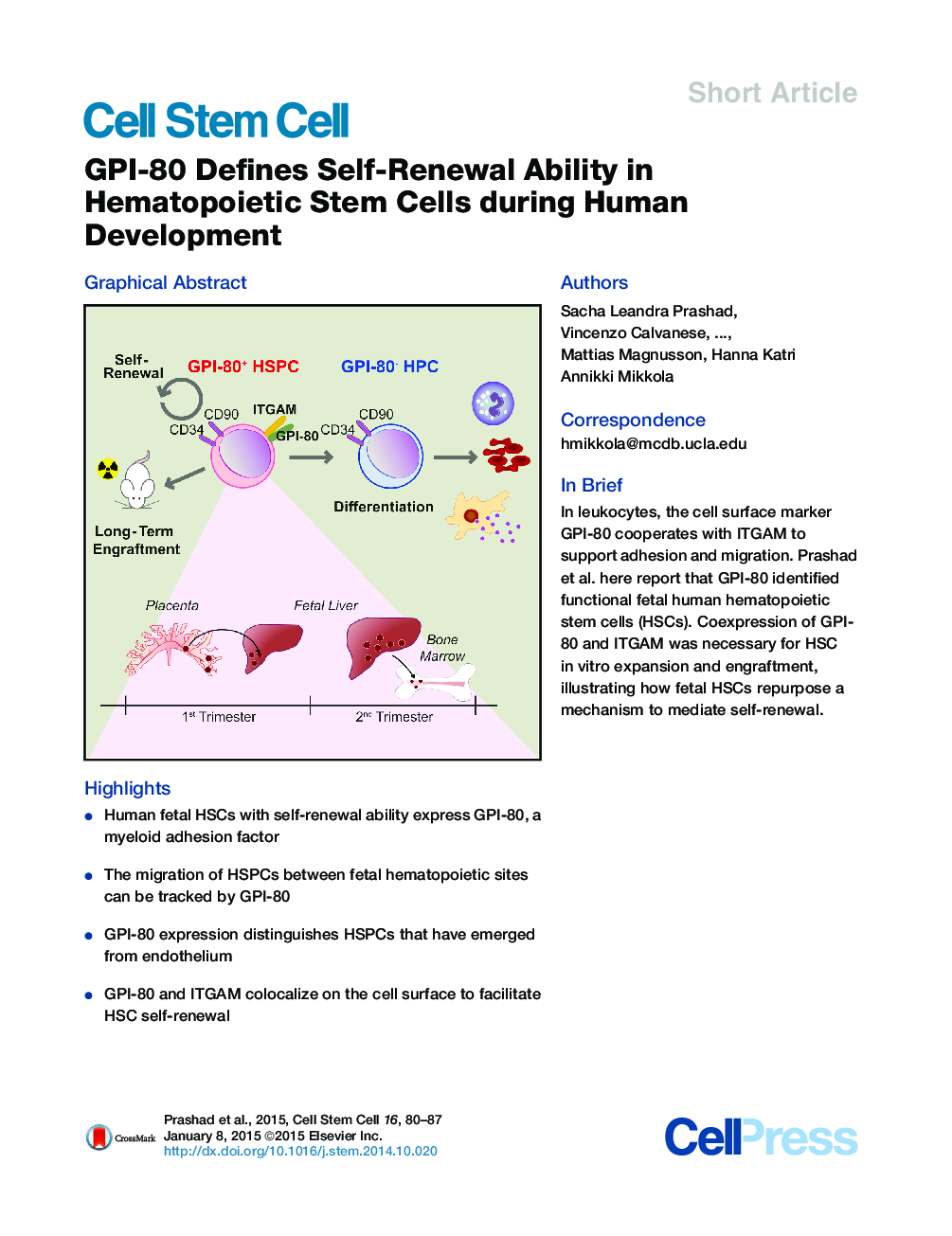| کد مقاله | کد نشریه | سال انتشار | مقاله انگلیسی | نسخه تمام متن |
|---|---|---|---|---|
| 2077292 | 1079696 | 2015 | 8 صفحه PDF | دانلود رایگان |

• Human fetal HSCs with self-renewal ability express GPI-80, a myeloid adhesion factor
• The migration of HSPCs between fetal hematopoietic sites can be tracked by GPI-80
• GPI-80 expression distinguishes HSPCs that have emerged from endothelium
• GPI-80 and ITGAM colocalize on the cell surface to facilitate HSC self-renewal
SummaryAdvances in pluripotent stem cell and reprogramming technologies have given us the hope of generating hematopoietic stem cells (HSCs) in culture. To succeed, greater understanding of the self-renewing HSC during human development is required. We discovered that the glycophosphatidylinositol-anchored surface protein GPI-80 defines a subpopulation of human fetal liver hematopoietic stem/progenitor cells (HSPCs) with self-renewal ability. CD34+CD38lo/−CD90+GPI-80+ HSPCs were the sole population that maintained proliferative potential and an undifferentiated state in stroma coculture and engrafted in immunodeficient mice. GPI-80 expression also enabled tracking of HSPCs once they emerged from endothelium and migrated between human fetal hematopoietic niches. GPI-80 colocalized on the surface of HSPCs with Integrin alpha-M (ITGAM), which in leukocytes cooperates with GPI-80 to support migration. Knockdown of GPI-80 or ITGAM was sufficient to compromise HSPC expansion in culture and engraftment in vivo. These findings indicate that human fetal HSCs employ mechanisms used in leukocyte adhesion and migration to mediate HSC self-renewal.
Graphical AbstractFigure optionsDownload high-quality image (352 K)Download as PowerPoint slide
Journal: - Volume 16, Issue 1, 8 January 2015, Pages 80–87